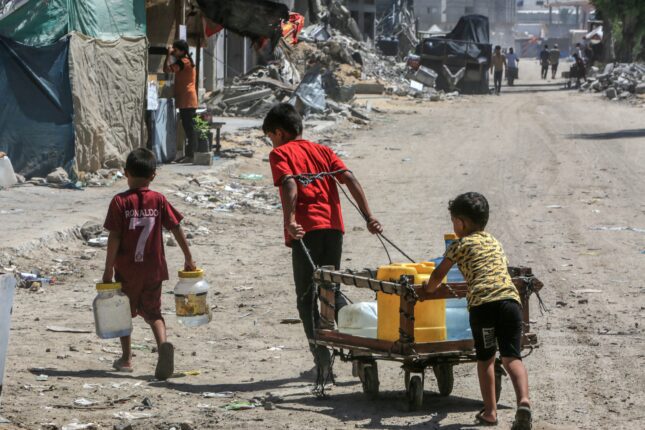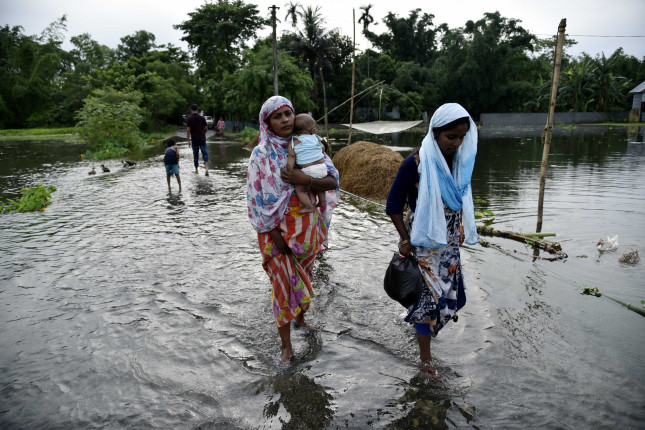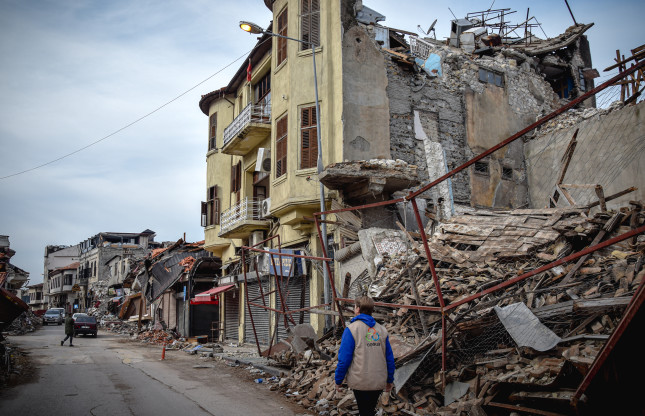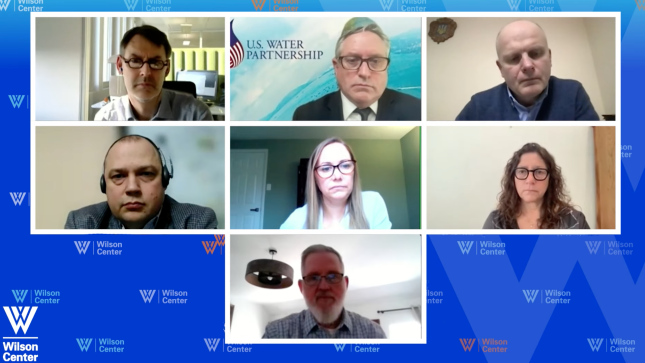-
Swachh Bharat Mission: Intended and Unintended Consequences
› Open defecation (OD) has been demonstrated to be a major contributing factor to poor health, resulting in adverse social and economic impacts due to work and educational disruptions. Despite various policy-driven efforts since 1954 to eradicate OD, it remains highly prevalent in India—especially in rural areas where there is a lack of toilets. A survey conducted in 2012 revealed that 60% of rural households (and 9% of urban households) had no toilet access. India’s open defecation rate of 40% was one of the highest in the world—more than three times the global average of 12%.
Open defecation (OD) has been demonstrated to be a major contributing factor to poor health, resulting in adverse social and economic impacts due to work and educational disruptions. Despite various policy-driven efforts since 1954 to eradicate OD, it remains highly prevalent in India—especially in rural areas where there is a lack of toilets. A survey conducted in 2012 revealed that 60% of rural households (and 9% of urban households) had no toilet access. India’s open defecation rate of 40% was one of the highest in the world—more than three times the global average of 12%.
-
War and Climate Change Intensify Global Water-related Conflicts
›
The Pacific Institute recently updated its Water Conflict Chronology—a database of water-conflict events that began to take form in the 1980s. The recent updates include the addition of 300 new entries to the database, highlighting the alarming rise of water-related conflicts in the last few years. Despite this overwhelming evidence of a growing trend in water-related conflicts, global attention toward addressing them remains negligible.
-
ECSP Weekly Watch | August 12 – 16
›
A window into what we are reading at the Wilson Center’s Environmental Change and Security Program
Mpox Outbreak a Global Health Emergency, Again (The Washington Post)
Various rapidly spreading mpox strains in Central and East African countries have led the World Health Organization (WHO) to declare the viral infection as a global health emergency. More than 15,000 people have been infected this year alone, with over 500 deaths reported. Mpox is transmitted largely through exposure to infected animals, as well as via skin-to-skin or sexual contact, and it disproportionately affects heterosexuals and sex workers.
-
ECSP Weekly Watch | July 22 – 26
›
A window into what we are reading at the Wilson Center’s Environmental Change and Security Program
Worsening Health Conditions in War-Torn Gaza (BBC)
Water infrastructure in Gaza was already weak before the beginning of the war in 2023, but intensified conflict and siege of critical infrastructure the damage wreaked by Israel’s military forces on critical infrastructure (including water, energy, and food), has left 70% of the people in Gaza exposed to salinated and contaminated water. Traces of polio have been found in wastewater flowing both between displacement camp tents and in inhabited areas, and experts suggest that this water might be circulating.
-
Reusable Food Packaging in US and China: Closing the Loop on Plastics in Closed Environments
›During the World Wildlife Fund’s Plastic Policy Summit in March in Washington D.C., I grabbed coffee in a white ceramic mug provided by the convention venue. Reusable mugs seemed unusual amid today’s prevalence of single-use cups, prompting me to reflect on how we have normalized single-use: I bought yogurt and soda in returnable bottles in Beijing; generations before us grew up with reuse. Why did we move away from it?
-
New Global Health & Gender Policy Brief: Climate Change and Maternal and Newborn Health Outcomes
›
The growing climate crisis presents one of the largest public health threats of the century. However, its countless impacts on maternal and newborn health outcomes (as well as health disparities worldwide) have only recently gained global attention.
-
Shaken to The Core: The Plight of Syrian Refugees After February’s Earthquake
›
Madiha vaguely remembers her family fleeing war-torn Syria. But even a decade later, she still bursts into tears describing their midnight escape across the border to Turkey. She and her family were forced to flee after losing family members in a civil war in which they had no stake.
Little did Madiha—who is now 11 years old—and her family know they would experience another monumental trauma a decade later. This time, it was a 7.8 magnitude earthquake that rocked large swaths of southern Turkey on early February 6, 2023.
The roof they built with their own hands collapsed over their heads, killing several of Madiha’s nieces and siblings. “A large piece of brick fell on my mother’s leg, but she luckily survived,” she said tearfully.
-
Water and Conflict: Updates from the Russia-Ukraine War
›
The first anniversary of Russia’s invasion of Ukraine is also a reminder of the long-term challenges faced by that embattled country, including one of the most important resources for human survival: water.
“For Ukrainians, water has been under fire for nearly a decade,” observed Erika Weinthal, Professor of Environmental Policy and Public Policy at Duke University, at a recent Water @ Wilson Series event: “Water and Conflict: Updates from the Russia-Ukraine War,” co-hosted by the U.S. Water Partnership.
Showing posts from category sanitation.


 Open defecation (OD) has been demonstrated to be a major contributing factor to poor health, resulting in adverse social and economic impacts due to work and educational disruptions. Despite various policy-driven efforts since 1954 to eradicate OD, it remains highly prevalent in India—especially in rural areas where there is a lack of toilets. A survey conducted in 2012 revealed that 60% of rural households (and 9% of urban households) had no toilet access. India’s open defecation rate of 40% was one of the highest in the world—more than three times the global average of 12%.
Open defecation (OD) has been demonstrated to be a major contributing factor to poor health, resulting in adverse social and economic impacts due to work and educational disruptions. Despite various policy-driven efforts since 1954 to eradicate OD, it remains highly prevalent in India—especially in rural areas where there is a lack of toilets. A survey conducted in 2012 revealed that 60% of rural households (and 9% of urban households) had no toilet access. India’s open defecation rate of 40% was one of the highest in the world—more than three times the global average of 12%.







